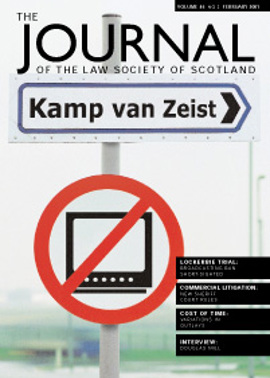Legal responsibilities for gas safety
The law evolves around the Gas Safety (Installation and Use) Regulations 1998 (SI 1998 No. 2451) and the Approved Code of Practice and Guidance published by the Health and Safety Commission entitled “Safety in the Installation and Use of Gas Systems and Appliances”. Now you could be forgiven for thinking that this sounds far too technical for the busy lawyer, particularly one who steers away from health and safety issues, as so many do. It is not a little unfortunate that this particular piece of legislation has been shunted to a siding, where it does not belong.
Let me explain:
Many of the provisions of these regulations are indeed technical and anyone but a CORGI engineer could be forgiven for avoiding them like the plague. It would, however, be beneficial to examine some of the provisions rather more closely in order to determine whether solicitors advising landlords, managing agents and tenants of residential property might like to consider making it their business to familiarise themselves with certain aspects of this legislation.
The regulations impose legal duties upon landlord and tenant and are also significant for anyone concerned with lettings, such as managing agents. The regulations cover the installation, maintenance and use of gas appliances, fittings and flues in domestic premises and certain commercial premises. Where a landlord owns a gas appliance or installation pipework in premises let by him, he has a duty to ensure that gas fittings and flues are maintained in a safe condition, so as to prevent risk of injury to any person. If estate agents are acting as managing agents on behalf of the landlord, the legal duties of the landlord will pass to those of his managing agents – but only if this has clearly been set out in the agreement between the parties.
Gas safety checks have to be carried out every year in respect of premises to which the regulations apply.
Who is a landlord?
A “landlord” is a term which is defined in regulation 36(1) and it includes tenanted property of local authorities, housing associations, landlords in the private sector, housing co-operatives and hostels. Also captured by the regulations are rooms which are let to tenants in both bedsit accommodation and private houses, as well as bed and breakfast accommodation. Rented holiday accommodation is captured by the regulations, including caravans, cottages, flats, chalets and narrow boats on inland waterways.
The gas safety check should be carried out once a year by a CORGI gas engineer and a record supplied to the landlord/managing agent and tenant.
The tenant also has certain duties imposed upon him; for example, it is illegal for a tenant to undertake any DIY work on gas appliances or fittings.
So what happens if the landlord either forgets to arrange for the gas safety check to be carried out or an accident happens? The regulations make it a criminal offence to use or allow the use of a gas appliance which is unsafe or known to be unsafe. Criminal prosecutions are brought in England by the Health and Safety Inspector and in Scotland by the Prosecutor Fiscal on behalf of the Health and Safety Inspector for breach of the regulations. The result can be imprisonment and a substantial fine. A director of a limited company could even be disqualified from being a director because of his inability to manage its affairs safely.
If managing agents have been instructed by the landlord, the managing agents will, for practical purposes, stand in the shoes of the landlord as far as any prosecution is concerned.
The gas safety regulations provide for a defence to any prosecution of the landlord where he can show that he took all reasonable steps to prevent the breach. The Code of Practice provides practical advice as to how compliance with the law should be achieved. Compliance can be achieved by other methods, but it would have to be shown that those other methods are just as effective as those set out in the Code, for if they are not, a finding of guilty would follow.
For further information, visit the website www.thelettingsmarket.com Deanna Levine is a solicitor dual qualified in Scots and English Law
In this issue
- President’s report
- The Lockerbie trial and article 10
- Sheriffs reclaim a role in commercial actions
- Why become a solicitor if you want to do banking?
- Promoting paralegals
- Code cracks unified regulation
- Substitute land and charge certificates
- Legal responsibilities for gas safety
- Robust self analysis the key to change
- Don’t trust your memory
- Nice Summit: the road to enlargement
- Book reviews
- Around the houses






